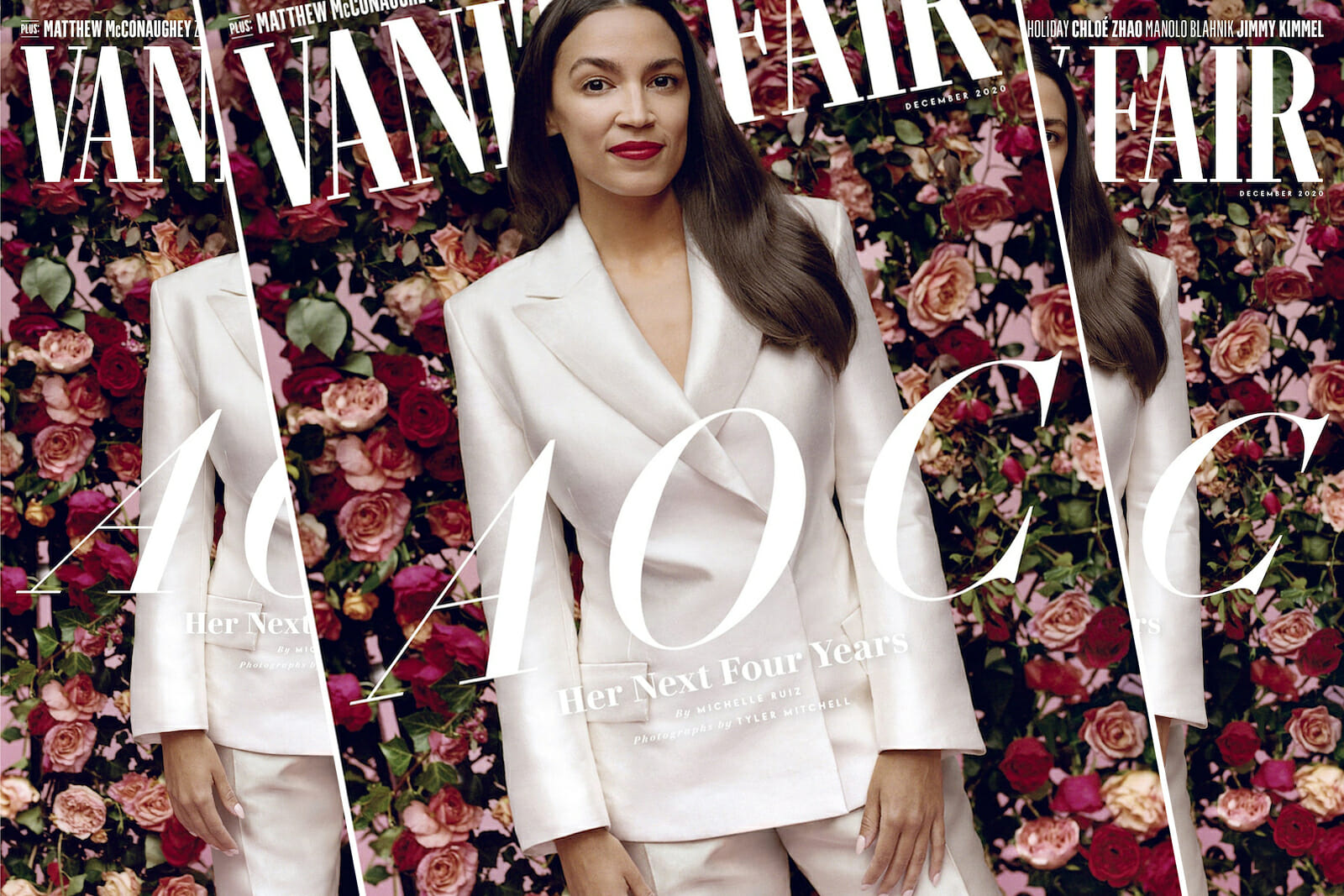
Culture
Dress to Address: Why Fashion is Indeed Political
Former First Lady Michelle Obama’s “vote” necklace. Congresswoman Alexandria Ocasio-Cortez’s red lipstick. Fashion is indeed political. For one, dressing up each day is a form of self-expression, just as the act of having to assert your ideals and values as a woman. I believe that the key is not to embrace clothing just simply as trends or things that are considered frivolous, but to also tell a story of how fashion is indeed political.
When I was living in Washington DC, I once entered a meeting room on Capitol Hill filled with men wearing ill-fitting suits. I quickly realized from that moment on, I was truly living in the nation’s capital. A city defined by frenzied elite politics, the narrow margin between activism and power, all the while being ruled by people who looked up to the muses of Olivia Pope (Scandal) or Claire Underwood (House of Cards). At that time, it was early fall and I was wearing my father’s hand-me-downed blazer which I combined with a layered dress. Of course, I know I got “the look.” Initially, I thought it was because either I was late, I was the only woman, or I was the only non-caucasian women. Or so that’s what I thought. It was also because of the way I dressed.
In a city built for power, there is an excruciatingly narrow margin for acceptable female dresses. All women, no matter how many postgraduate degrees they have or who they know, they still walk an inescapable fashion tightrope. I have always been a huge advocate of not only “wearing your heart on your sleeves, but also wearing your values on your sleeves.” That is, I am not dressing up for anyone else but myself. However, in the line of work that I am in, unfortunately, to elevate my voice as a woman which is easily unheard of, I need to think of other ways to do it. And that is through clothes.
For the longest period of time, the way politicians dress has been associated with two things: male pant-suits and high-end pieces. In other words, it is elitist and created for men. The term “power dressing” has come a long way from shoulder-padded black trouser suits and stilettos. It has evolved into something more. However, the principles remain the same- and it’s called “soft power dressing.” Or the act of using fashion and jewelry to communicate something especially when you are used to not being heard. Truly “soft power dressing” is a palatable persuasion more effective than force. And “power dressing” itself is defined as the fashion style that enables women to establish their authority in a professional and political environment traditionally dominated by men.
Initially, power dressing consisted of a conservative style recalling directly the male wardrobe including tailored suits, jackets with padded shoulders, roll-neck sweaters, and knee-length skirts. With the power dressing uniform, the female body was divided into two parts: The upper part covered by a jacket to de-emphasize breasts, the bottom covered with a skirt that was a reminder of femininity.
We’ve come a long way. Today, power dressing is designed to let the inner power of a woman come through. Power dressing locates power at the body level giving a message about women and their profession, enclosing at the same time something about self-esteem and confidence.
Power dressing thus attempts to counterbalance a woman’s natural femininity and inherent sexuality, with the goal of preventing the sexual misinterpretation through her clothes that might otherwise allow. This is because if politics induces power, then so can femininity.
For the longest time, women in political positions have been subjugated to how they dress and their choice of clothing. Thus, I believe that we have been underestimating the art of dressing up. If the COVID-19 pandemic teaches us anything, it is that the way we value getting ready every day, planning an outfit the night before, truly speaks more about the decisions we make in our lives more than we initially thought of.
Take AOC as an example. The young congresswoman is not only a force to be reckoned with in flipping the table on Capitol Hill, but also how women of colour should dress. During her swearing-in, she decided to don a white pantsuit completed with light gold hoop earrings and red matte lipstick. She was not only paying tribute to honour women suffragettes and the movement, but she also brings her own twist to masculine power suiting.
Fashion, politics, and fighting for gender equality are intrinsically intertwined. We have seen how much fashion has been such a political statement, whether it be the reclamation of our power by wearing jeans or really pushing against the idea of what is considered “feminine” or any character trait. I truly believe that the notion can be either. Therefore, I feel like the two go hand-in-hand, and overarchingly it is a form of self-expression. Because to be able to reclaim your space while reclaiming your aesthetic, is power.

